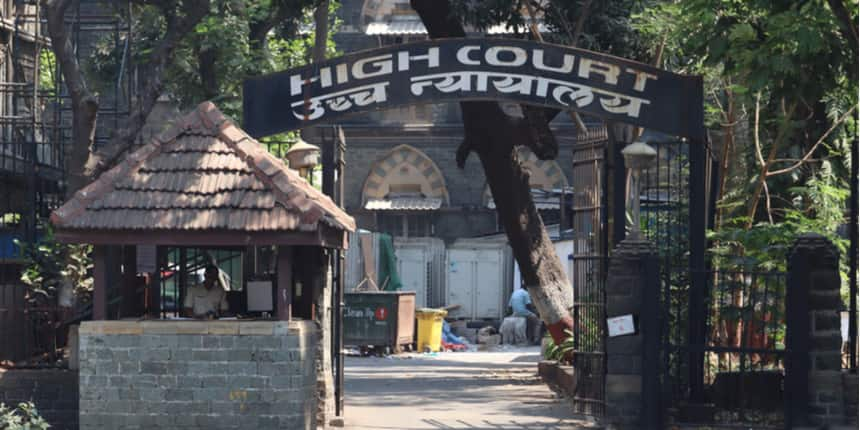Fine line of distinction between religion and culture: Counsel for Udupi PU College in HC
Press Trust of India | February 22, 2022 | 10:16 PM IST | 4 mins read
The counsel for the Udupi pre-university college contended that their prayer regarding the institution's authorities were unusual

BENGALURU: The counsel for the Udupi based pre-university college, some of whose Muslim girls students have moved the Karnataka High Court against a Hijab ban, on Tuesday contended that their prayer regarding the institution's authorities were unusual and said there is a fine line of distinction between religion and culture.
"The prayers are unusual. The mandamus is to conduct an inquiry against the principal and its lecturers for their hostile approach," senior counsel SS Naganand told the full bench of the Karnataka High Court comprising chief justice Ritu Raj Awasthi, Justice JM Khazi and Justice Krishna S Dixit.
Reading out the portion of the petition, he said the petitioners studying in the Government PU College were wearing their regular headscarves over their college uniform. "The principal, lecturer and the College Development Committee insisted that the petitioners remove their headscarves by shaming them (and) invoking their religious identity," Naganand said while reading from the petition.
Also read | Wish to finish hearing Hijab case this week, says Karnataka High Court
However, the petitioners did not say that whether they were wearing Hijab when they joined the college and how many other students wore it. The girls also did not disclose that when they joined the college their parents had signed an undertaking that they will abide by the uniform rule and for how many days they have been wearing Hijab. "They say that in the month of August 2020, respondent 6 and 7 (principal and lecturer) rebuked the petitioners and told them that their parents have signed a consent letter at the time of admission, accepting the terms and condition. Then they were scolded," the senior counsel said. According to the lawyer, the girl students were not in the habit of wearing Hijab previously in the college. Occasionally, the parents of the Muslim girls used to enquire whether wearing of Hijab is permitted during the college study hours, he added. Naganand also told the court that the parents of the Muslim girls, who want Hijab to be permitted on the college campus, requested the teachers to ensure that their daughters are not involved in singing, dancing, music and extra-curricular activities.
Also read | 58 girl students suspended for wearing Hijab, holding protest; govt says it didn't ban hijab
"Now a different context is given to the whole thing. I don't know whether they mean the Muslim girls should not sing with their classmates. If the national anthem is sung, they should not sing? Is it against Islam? If they are taught to sing devotional song on the country, Mother India, they should not sing?" the counsel for the PU College said. None of these things have anything to do with religion as there is a fine line of distinction between religion and culture, he averred. Citing some examples of wearing 'Mangala Sutra' and 'Saptapadii', he said Hindus everywhere do not have the practice of following these traditions.
However, the members of those communities who culturally do not have these traditions, actually follow them when they are in places where other people follow the practice of wearing "Mangala Sutra" or 'Saptapadi'. These communities have actually integrated with the local culture here, Naganand argued. "There is a distinction between an essential religious practice and cultural requirement, which is attached to the practice of religion," the advocate contended. Citing another example of 'Ghoonghat" (veil among Hindu women) where the father-in-law is not supposed to see the face of the daughter-in-law, Naganand sought to know whether that is a religious practice. "Is wearing a head scarf a religious practice or a cultural requirement that some people thought it was necessary," the advocate said. He contended wearing Hijab is really not an essential religious practice. Speaking about some essential religious features, he said praying five times a day is an essential feature of Islam. However, in today's world it is not possible for every Mohammedan to get and stop whatever he and she is doing and go for prayer, Naganand said.
Also read | DU: College of Art students demand stopping of merger of institute with Ambedkar University
Citing his own example, he said there is a diktat for the Hindus that after the 'Upanayanam' (sacred thread ceremony), 'Sandhya Vandanam' has to be performed three times a day but now physically these things are not possible. "I am arguing a case before the court at 12 in the noon. I can't say excuse me, I have to go to do my prayer and if the court says I will not allow you, can I turn around and say you are curtailing my right to practice religion because my religion says I must do it three times a day" the counsel argued.
Naganand also sought to know that if someone is riding a scooter right in the middle of the road, and hears Azan coming from a mosque, should he stop the scooter there and start praying in the middle of the road. "If I do it and the policeman comes and says why are you doing that in the middle of the road, and I say, come on, you are preventing me from practicing my religion. My religion tells me to pray. Therefore I am praying in the middle of the road. No. That can't be permitted," the senior counsel said. In the course of practicing religion people should not come in the way of other people's peace and joy, the lawyer argued.
Follow us for the latest education news on colleges and universities, admission, courses, exams, research, education policies, study abroad and more..
To get in touch, write to us at news@careers360.com.